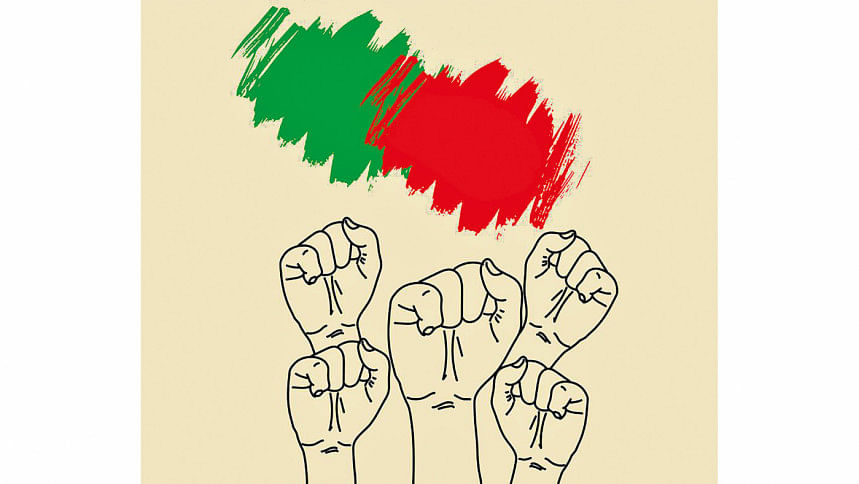The politics of recognition and Bangladesh’s statehood

Following the surrender of Pakistani army to Bangladesh on 16 December 1971, after the bloody war of nine months, the ultimate victory was attained. After quite a hiatus, the USA recognised Bangladesh on 4 April 1972. Many countries had recognised Bangladesh as an independent state by then. The main cause underlying USA's delay in recognising Bangladesh may be traced back to unscrupulous international politics existing at that time. More specifically, the politics of the Cold War between the USA and the USSR had a significant impact on the overall climate surrounding the emergence of Bangladesh as an independent state. Despite meeting all requirements of statehood under international law, Cold War politics unnecessarily prolonged Bangladesh's wait for state recognition from several states.
The criteria of statehood under international law have been stated in Article 1 of the Montevideo Convention on the Rights and Duties of States of 1933. It entails that a state ought to have a permanent population, defined territory, government, and capacity to enter into relations with other states. However, meeting the legal requirements outlined above does not ensure that an entity will be recognised as a state; rather, state recognition is contingent upon political considerations. In this regard, Opinion No. 10 of the Conference on Yugoslav Arbitration Commission in July 1992 stated that recognition is a discretionary act that other states may perform when they choose and in the manner of their choosing, subject only to compliance with the imperatives of general international law. For instance, the USA declined to recognise North Korea and the People's Republic of China due to political considerations rather than their failure to meet statehood requirements under international law.
Following the surrender of the Pakistani army to Bangladesh on 16 December 1971, after the bloody war of nine months, the ultimate victory was attained. After quite a hiatus, the USA recognised Bangladesh on 4 April 1972. Many countries had recognised Bangladesh as an independent state by then. The main cause underlying USA's delay in recognising Bangladesh may be traced back to unscrupulous international politics existing at that time.
In fact, the USA applied the same policy with regard to recognising Bangladesh. Due to its Cold War conflicts with the Soviet Union over Bangladesh's independence, the USA not only delayed in recognising Bangladesh until 4 April 1972, but also persuaded other states to that end. The countries so persuaded including Turkey, Saudi Arabia, and China, recognised Bangladesh after 4 April 1972. Among these countries, Pakistan and Turkey recognised Bangladesh on 22 February 1974. The recognition of Saudi Arabia and China to Bangladesh came on 16 and 31 August 1975, respectively.
On the other hand, in this regard, the USSR's influence can be seen in the fact that most Warsaw Pact countries recognised Bangladesh following the war. In fact, East Germany, Poland, Ukraine, Yugoslavia, and the USSR were among those states that recognised Bangladesh's independence before other states did. Indeed, most of the 44 states that recognised Bangladesh until the USA did so on 4 April 1972, were members of the Soviet bloc and its allied nations.
The differences of opinion among the states over whether or not to recognise Bangladesh could raise serious concerns about whether or not Bangladesh satisfies the requirements set forth by international law to be recognised as a state. However, the fact that recognition is predicated more on political considerations than legal ones, helps clarify Bangladesh's status of statehood even prior to recognition from states such as the USA, since Bangladesh met all the legal criteria as enshrined in Article 1 of the Montevideo Convention. Bangladesh had a permanent population of about 70 million, a defined territory of 147,000 square kilometres, a government headed by Tajuddin Ahmad in absence of the Father of the Nation, Bangabandhu Sheikh Mujibur Rahman, and the ability to engage in relations with other states (as evidenced from the joint forces agreement signed by the government-in-exile of Bangladesh with India on 4 December 1971. Despite meeting all the legal criteria of statehood, the non-recognition of Bangladesh by the USA and its allies can be explained as manifestation of their political calculations.
The writer is graduate of the Faculty of Law, Jahangirnagar University.

 For all latest news, follow The Daily Star's Google News channel.
For all latest news, follow The Daily Star's Google News channel. 



Comments